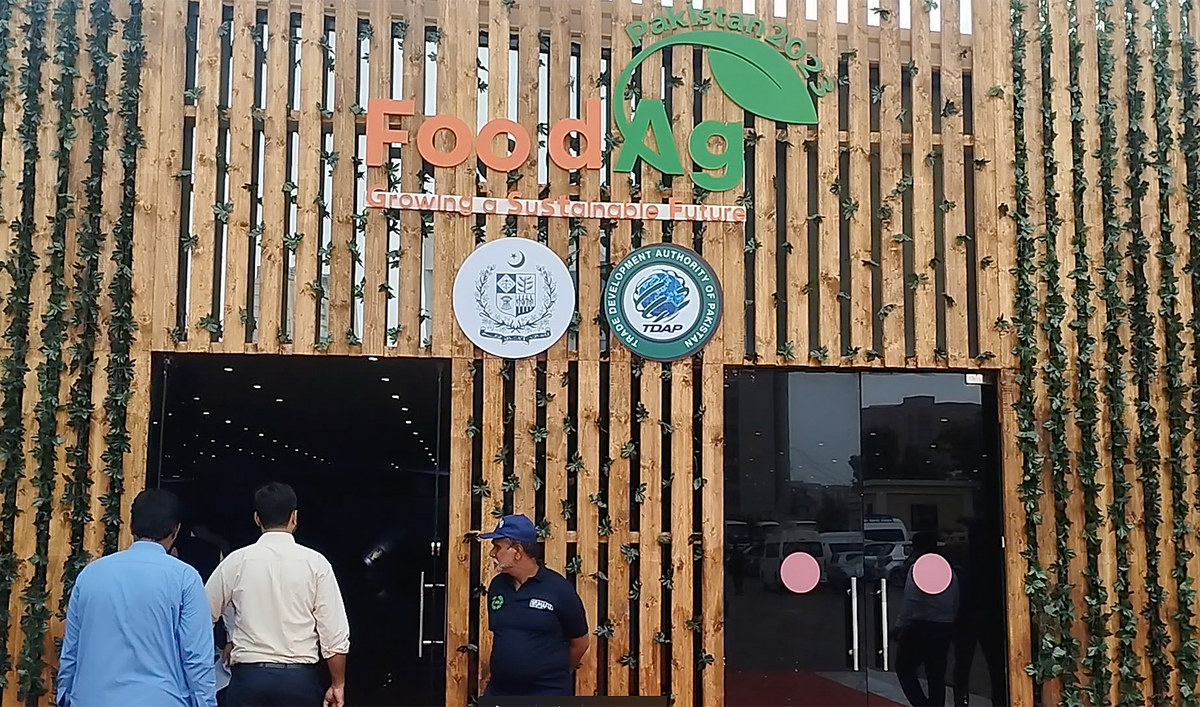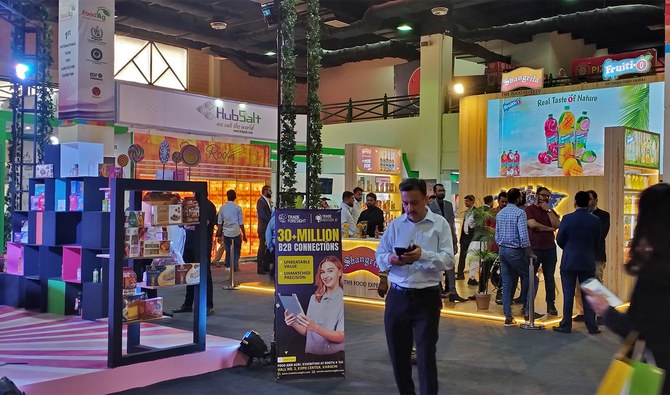KARACHI: A top Pakistani official expressed confidence on Thursday the country would get increased investment from the Middle East after inaugurating the first International Food and Agriculture Exhibition in Karachi to display the export potential of Pakistan’s agriculture sector.
Organized by the Trade Development Authority of Pakistan (TDAP), the three-day exhibition was launched by the governor of Sindh province, Kamran Tessori, at the Karachi Expo Center. The event has brought together over 200 exhibitors who have put a wide range of agriproducts and technologies on show for foreign delegates from 55 countries.
Addressing the media after the inauguration ceremony, Tessori mentioned a recent agreement signed by the United Arab Emirates (UAE) to develop the Karachi port.
“You will see in the coming days that all the gulf states will come to Pakistan and sign agreements like the UAE,” Tessori said, adding: “In the future, these agreements will be signed by governments themselves.”
UAE’s Abu Dhabi Ports signed a 50-year concession agreement with the Karachi Port Trust earlier this year to develop a bulk and general cargo terminal in the southern port city.
According to details, Pakistan is likely to see an estimated investment of $220 million over a period of 10 years under the project.
The governor said the country’s leadership had become serious about economic development for the first time in its history.
“For the first time in 75 years, the development of Pakistan’s economy has been taken seriously and there will not be any obstruction in the way,” he said.

People attend Pakistan's first International Food and Agriculture Exhibition in Karachi on August 10, 2023. (AN photo)
He maintained that he was confident the country’s exports would increase at least three times by the coming year.
Tessori said over 600 foreign delegates were attending the exhibition which reflected that investor confidence had been restored in Pakistan.
Speaking to Arab News, Sayed Mohey, a commercial manager at Jeddah-based Jahaf Group that deals with fruits and vegetables, said he was impressed by Pakistan’s export potential.
“This is my first visit to the county,” he said. “As far as the business is concerned, there is lot of potential for food stuff like fruits, vegetables, and fisheries.”
He maintained that Pakistan was ideally placed to serve the markets in gulf countries and Saudi Arabia. Mohey specifically mentioned Pakistani mangoes and citrus fruits, calling them the best in the world and saying they were suitable for consumers in the Middle East.
A Nigerian delegation also said they were visiting Pakistan while looking for the good quality food products.
“Most of the Nigerian delegates who are here today actually saw what they want and they are buying it and taking it home,” Unegbu Alexander Nwachukwu, trade and development officer at the High Commission of Pakistan in Nigeria, told Arab News.
A large number of Chinese were also present at the exhibition and looking for products either to import or export from Pakistan.
Alan Xi, an agriculture project manager at the China Machinery Engineering Corporation, said Pakistan’s agriculture sector had great potential and his company was ready to invest in the country.
“Pakistan is an agricultural country and has a big potential in the supply chain and even value-added parts,” he told Arab News. “So, as a company, we are also ready for investing in the supply chain and value addition.”
“In the future, we will not only want to supply some advanced technology to Pakistan but also like to have our own manufacturers [here],” he continued. “The manufacturer unit is from China, but made in Pakistan.”
Pakistani exporter also expressed optimism the event would help boost the country’s agriculture product exports from the country.
“Foreign visitors are coming in large numbers to the exhibition and taking great interest,” Waheed Ahmed, an exporter of fruit and vegetables, said. “I think at the end of the exhibition, Pakistani exporters will get around a million-dollar business since we have fresh fruits, vegetables, and food items.”
















